The majority of criminal charges laid in the single largest police raid on marijuana dispensaries in Canadian history will not go to trial, the Public Prosecution Service of Canada has revealed.

Of the 90 individuals who were facing more than 180 charges in Toronto police’s May 26, 2016 Project Claudia raids of 43 dispensaries, 45 of those cases have been withdrawn or stayed and a further 27 have been settled through peace bonds — meaning the charges will not appear on the accused’s criminal records.
The data, first revealed by VICE News Canada, showed seven of the cases will go to trial in Superior Court, two will face trial in provincial court, four do not have a trial date set, three individuals have pleaded guilty and been sentenced, one is wanted on a bench warrant and the court lost jurisdiction in two cases.
READ MORE: Toronto police raid marijuana dispensaries across the city
Toronto police spokesman Mark Pugash told Global News Thursday that although the majority of the cases won’t see the inside of a courtroom, many of the accused had forfeited significant amounts of money and marijuana products seized by police in the raids. He said that showed the profitability of the “current illegal cannabis dispensary environment.”
“We know dispensaries are selling large amounts of cannabis, they’re generating large amounts of money,” Pugash said. “We have no idea where the dispensaries are buying their cannabis … which leads to, at the very least, the possibility that they’re buying it from organized crime. But we don’t know because they won’t tell us.”
Pugash said dispensaries also pose a risk to public safety, as the businesses have been the targets of “violent armed robberies” in the past, possibly because perpetrators believed there was a copious amount of marijuana and money inside.
“What is beyond any doubt is that dispensaries are against the law, there is no grey area … And so as long as it’s against the law we’ll continue to enforce,” he said.
“There appear to be a number of dispensaries that are prepared to walk away from large amounts of money and large amounts of product, which suggests that they’re making even more money and have access to even more product.”
Toronto lawyer Paul Lewin, who represented many of the accused along with several other lawyers, called the raids “a horrible use of very scarce police resources and court judicial resources” that only serve to push the market “further underground.”
“To say they don’t care about it, they walked away from it — I don’t think they have much of a legal choice in the matter,” he said.
“What choice did they have but to walk away from it especially when the Crown is offering to drop all the charges? But legally it would be difficult to get it back and I’d say if they’re thriving, there’s a reason why a medical dispensary is thriving and that’s because the government system is no good, it’s broken.”
Toronto Mayor John Tory said during a press conference Thursday that by previously “urging” Toronto police to crack down on the dispensaries, his “objective” was not to see anybody go to jail but to maintain “peace” in the city.
- Trudeau says ‘good luck’ to Saskatchewan premier in carbon price spat
- Canadians more likely to eat food past best-before date. What are the risks?
- Hundreds mourn 16-year-old Halifax homicide victim: ‘The youth are feeling it’
- Vacation death: Cuba apologizes after Canadian family receives wrong remains
READ MORE: Toronto mayor calls for urgent action on ‘Wild West of medical marijuana distribution’
“We cannot have the kind of popping up of these shops all over the place. And I’m absolutely certain that once the new regime is in place, whatever it is, it won’t contemplate marijuana shops popping up on every street corner,” he said, adding that he was “happy” there were fewer dispensaries in the city following the raids.
“So, I just think that the justice system will grind on as it does on in many areas and that the police will do what they have to do, which is enforce the law and we’ll go from there.”
Tory added he was “heartened” by the fact peace bonds would prevent individuals from opening more dispensaries in the future, something he said is not in the best interest of families and businesses in a “peaceful city.”
“It makes me happy to see that all of these victims of prohibition are having their charges dropped or thrown out but it makes me very sad to see that the police across this country are behaving like dinosaurs,” marijuana activist Jodie Emery told Global News Thursday.
“They refuse to catch up with public opinion and the opinion of the public prosecutors and of the Crown that cannabis cases are a waste of time and shouldn’t be clogging up the courts.”
“Imagine how much police time is actually spent going after people for pot and consider how much money people are actually being paid to continue this war on cannabis.”
READ MORE: Marc and Jodie Emery charged in Toronto amid marijuana dispensary raids across Canada
Pugash dismissed the notion that police were unable to investigate different types of crimes equally.
“For the people like Jodie Emery that say, ‘Well they should concentrate on murders and other things,’ we are able to do many things at the same time,” he said.
“Our homicide unit is solving homicides, our sex crimes unit is charging people with sex crimes of various sorts, our financial crimes unit is working very effectively — and so we make decisions about priorities and resources the same way as the prosecution service.”
READ MORE: 80 Canna Clinic marijuana dispensary employees charged after raids in Toronto, Vancouver
Lewin said he’s hopeful that more cases will be withdrawn in the future, adding he could not imagine a less harmful crime.
“It’s the height of recklessness on the part of the authorities — John Tory for pushing this, Justin Trudeau for not having a plan, the Toronto police for sprinting forward with this knuckleheaded plan when the consequences are potentially so serious for these young people,” he said.
“Either something is criminal or it’s not criminal, and if it is it should be prosecuted.”
With files from Mark Carcasole and Ryan Rocca






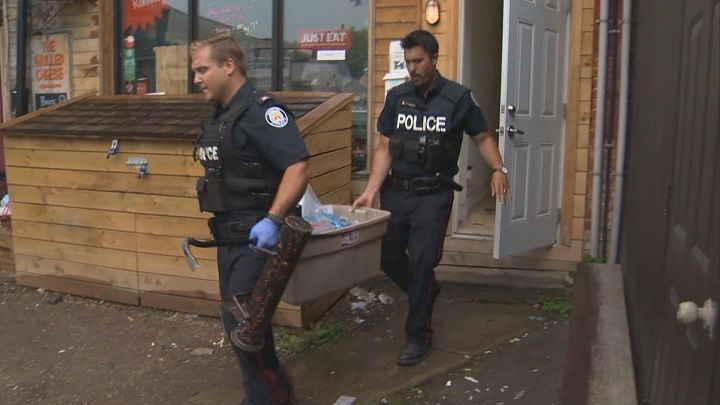

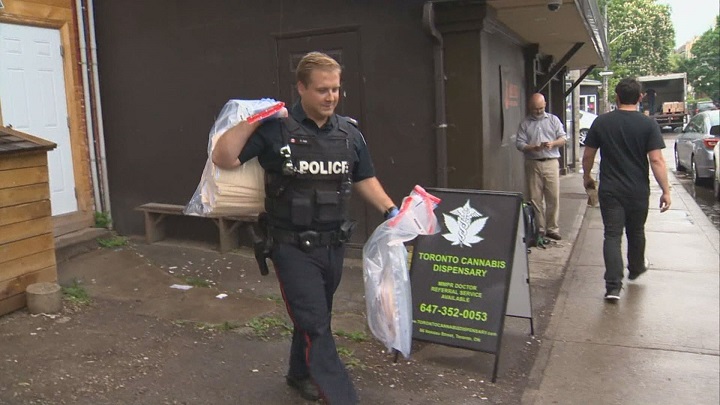

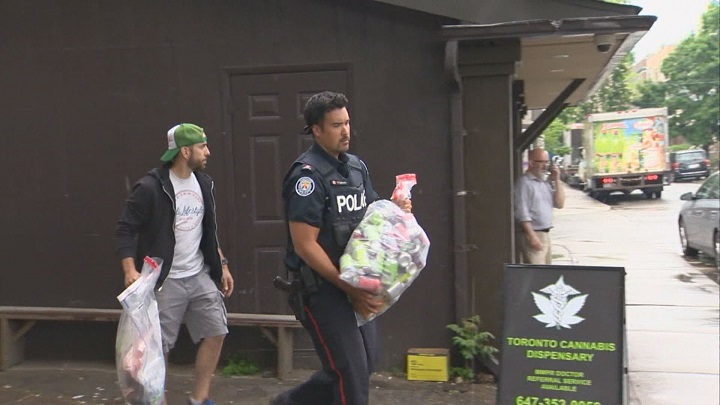





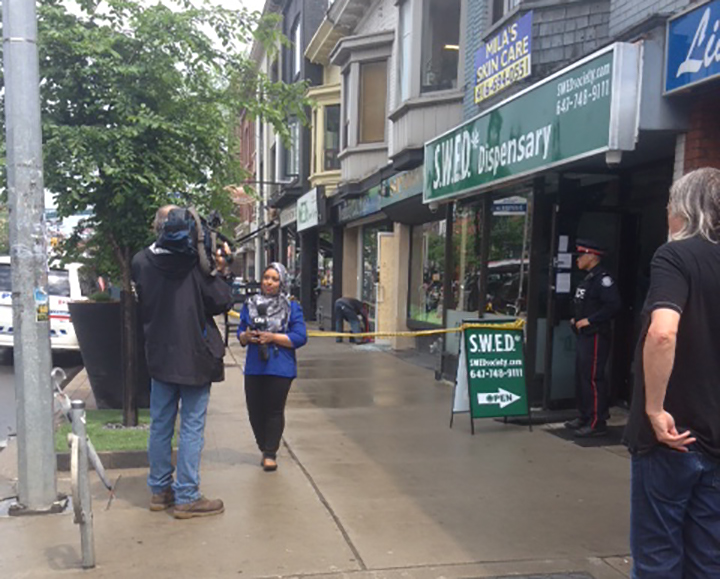

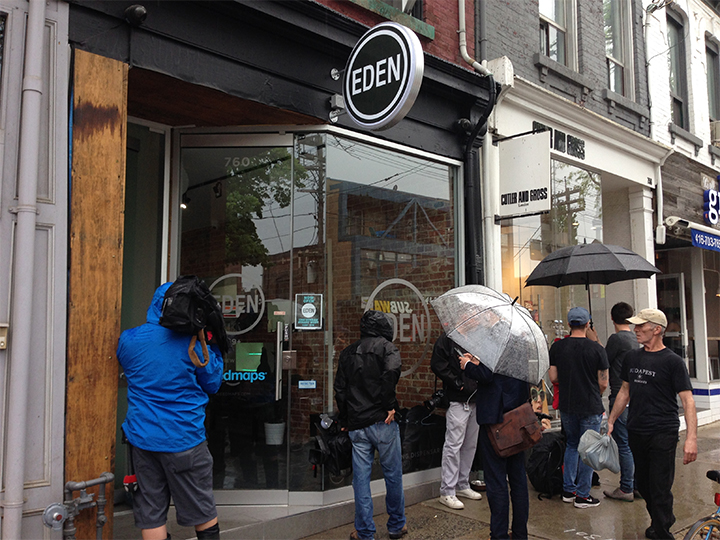








Comments